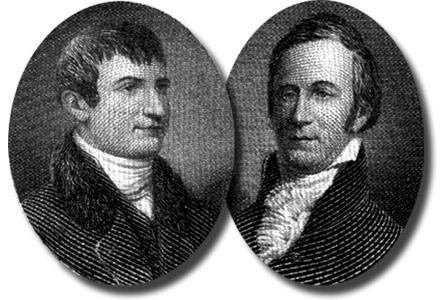Last updated: May 19, 2020
Article
How Did Lewis and Clark Meet?

As a young ensign in the regular army, Lewis was assigned to the Second Sub-Legion under General Anthony Wayne. On November 6, 1795, charges were brought against him by Lieutenant Eliott, stating Lewis, when intoxicated, entered Eliott’s house on September 24, and without provocation insulted him and disturbed the peace and harmony of the Lieutenant’s guests. It seems they argued politics before Lewis was thrown out. Shortly thereafter, probably the same night or next day, Lewis challenged Eliott to a duel.
The charges: “A direct, open & contemptuous Violation of the first & second Articles of the seventh section of the Rules and Articles of War.” The first article said no officer or soldier should use reproachful or provoking speech or gestures to another. Article two forbade challenging anyone to a duel.
Lewis pleaded “not guilty” to the charges, and testimony over the next week led the officers of the court to decide in the ensign’s favor. General Wayne in the court-martial report concluded, “…as this is the first, that it also may be the last instance in [this command] of convening a Court for a trial of this nature – Ensign Meriwether Lewis is liberated from his Arrest.”
However, General Wayne knew that Lewis should not continue to serve in the same outfit as Eliott, so he transferred the 21-year-old ensign to the Chosen Rifle Company – a group of elite sharpshooters under the command of a 25-year-old captain, William Clark.
During their six months together, Clark and Lewis became close friends, and the foundation of their lasting relationship was formed.
